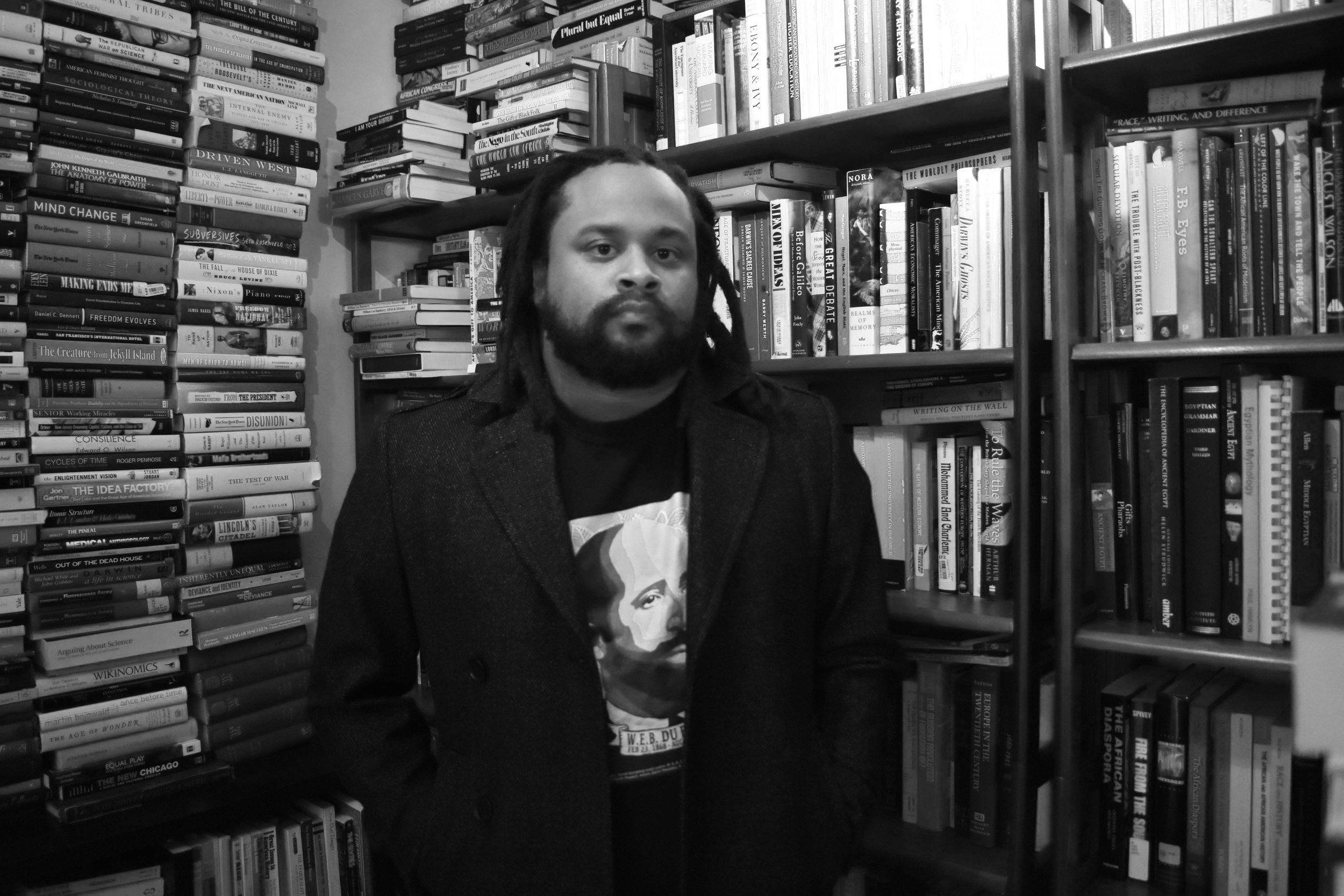Lecture Notes: Reading #Ferguson Through Africana Studies
And yet, whose is the deeper guilt?
Who made these devils?
Who nursed them in crime and fed them on injustice?
Who ravished and debauched their mothers and their grandmothers?
Who bought and sold their crime and waxed fat and rich on public iniquity?
Thou knowest, good God!
Is this Thy Justice, O Father, that guile be easier than innocence and the innocent be crucified for the guilt of the untouched guilty?
Justice, O Judge of men!
Wherefore do we pray?
Is not the God of the Fathers dead?
Have not seers seen in Heaven's halls Thine hearsed and lifeless form stark amidst the black and rolling smoke of sin, where all along bow bitter forms of endless dead?Awake, Thou that sleepest!
-W.E.B. Du Bois, “A Litany of Atlanta”
Any attempt to understand the killing of Michael Brown in Ferguson—indeed the ongoing assault on Black humanity—falters absent a conceptualization of modernity. It is modernity that was the foundation and point of departure for the large scale reduction of Black life to an economic arrangement, marks on a ledger, relations that are also larger than economic, and have not ceased to exist. It is modernity, the originary moment of the “idea of Europe,” that set in motion relations that animate the entire life worlds of people now called “Black,” no matter where they are on the planet. In his recently published Racial Blackness and the Discontinuity of Western Modernity, Lindon Barrett argues that the political coordination so welcomed by (some of) us for its advances in technology, the opening of a “New World,” and the emergence of capitalist economies were not possible without the anti-human subjectivity, which constituted a negative freedom: The African (as well as the indigenous First Nations peoples). In fact, in everything that we approbate as modern progress was premised on an attempt to reduce Black humanity to a cultural and “conceptual impossibility:”
“The alienation of the labor of African-derived populations is taken for granted in the military, political, and trading exploits that reorder the international landscape of the eighteenth century. In these arrangements, African-derived populations, under duress, remit the broad well-being of their communities for the maintenance and augmentation of other jurisdictions coveting the remittance. That is, contrary to imperial intentions, mercantile capitalism defines unexpected spheres of acute economic competition that, at the level of quotidian animation, depend on the puzzle, dilemma, or fully contrived performance rehearsing the misrecognition, the unaccountability, that the modernization of civic presence proposes distinctly that human animation fails the criteria of human being: the pragmatic modern meaning of the mass introduction and presence of African-derived persons in the circuits of Atlantic commerce and the “New World.” (27)
Barrett further argues that these relationships were not vanquished by the creation of the anticolonial nation states in the New World. Like Gerald Horne, he argues that the colonial identities forced upon Black life—that of an inhuman economic unit—was actually furthered in the so-called “Age of Democratic Revolution,” which in reality was a development that intended to ensure the continuity of an economic-political arrangement increasingly made difficult by competition (both economic and ideological) with the British colonial masters: “The material and conceptual effects of the African-derived “socially necessary labor time” redoubles the incongruity of the local, federal, and individual renditions of “the people” that mark the political urgencies of the Federalist era.” (31)
What ends up being the central conflict in early American history is the “internal enemy.” The exception that forever disproves the mythic rule. Human beings who must be prevented from being human. The African. Placed in a new context, we might ask different questions of the state. We would perhaps be able to see the matter of policing within a much more expansive sightline. Darren Wilson is but the product of a centuries old set of relations, a representative of an Euro-American project that is simultaneously about his own insouciance and about a crisis that cannot be divorced from the construction of modernity. The question of human amelioration so championed by Enlightenment partisans is arguably not the terms of relief from, but the source of our pain. New questions: Can justice be won for a group for whom life is a “conceptual impossibility?” And as Richard Iton in his In Search of the Black Fantastic, challenging the political naiveté of the post-civil rights era asks:“If modernity, that bundle of cultural, political, philosophical, and technological iterations and reiterations of the Renaissance, the Enlightenment, and the Industrial Revolution, ‘requires an alterity,’ as Michel-Rolph Trouillot suggests, if it implies and requires antonymic and problematic others—if it, to put it bluntly, needs “the nigger”—can those others constituted and marginalized in this manner viably challenge the their circumstances without questioning the logic and language of their exclusion?”(13)
For Africana Studies—if it is to be more than White Studies in Blackface—questions of modernity—which includes our temporary homes, the university—must be confronted. Not only are historical questions of the development of this modern moment paramount, there must also be an extensive examination of the ways in which African people understood and confronted the relations set forth by this moment. These are terms, understandings of reality that structure the ideological projects of Black resistance, which began at the very moment that Euro-modernity was inaugurated. They stretch the conceptual and periodic limits of the West, and of attempts to (mis)place Black resistance within narratives of American progress that have been increasingly exported abroad—that is, as a part of the historical inevitability of the model nation. The Hegelian project that ended history. But most importantly, the tradition as outlined by Cedric Robinson in his Black Marxism, resists the tendency to understand Black resistance within the interstices of the “logic and language” of their exclusion from the idea of the nation, and proposes culture as an essential lens for conceptualizing their resistance to the incursions of the state. In a Robinsonian methodology, the long-tradition of Black resistance is a life-giving, life-preserving tradition, intellectual and political, animated by rivers of struggle, of conceptual possibilities that Black life is life, and that it indeed matters. Africana Studies is an intellectual war, not for acceptance into the spaces of exclusion, but the latest round of a confrontation with the entire axis of modernity. To those fighting this battle, we must assume that Africans (back then and now) possess their own ideas about the terms of such exclusion and the resolutions for a different, more human, future issuing therefrom. One follows this trajectory to the doorstep of a unique form of intellectual resistance, part of an Africana Studies approach, that combines a reading of the ways in which African people understood the world, cognizant of the forces that “created these devils.”







